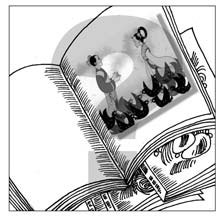Cultivating a love for reading
Updated: 2007-09-13 07:34

There has been a lot of media coverage on revised textbooks for Chinese language and literature since mid-August.
Some highlight the exclusion of a fairy tale from one new textbook for sixth-graders. The reason given to drop the tale was that it might induce students into early love affairs before even reaching puberty. The tale, after all, narrates a love story between a cowherd on earth and a fairy in heaven.
More reports focus on revised textbooks for senior high middle school students.
As stories unfold, we learn that some of the editors are fans of such contemporary writers as Louis Cha, best-known for his kungfu novels that often knead fantasy traditional Chinese martial arts into complex historical, political, social and even human intrigues. It seems that the editors love Cha's works so much that they could not resist but introduce at least one novel of Cha's into the curriculum.
As new lessons are introduced, the old must give way. The True Story of Ah Q, by Lu Xun (1881-1936), has been replaced, among others, by works of what an editor said is "closer to our era", thus ending the short story's more than half a century's "tenure" in high school curricula.
According to that editor, the new textbooks offer students more "fresh faces" so that they would feel the world closer to them. In other words, the textbooks for Chinese language and literature now provide a diversity of authors and styles not only from ancient to contemporary China, but also from classical and present-day works of the world.
All this, from the dropping of the fairy tale to the disappearance of Lu Xun's works, have aroused heated debate on the Internet.

While I believe it is too far-fetched to connect the tragic love of the cowherd and the fairy with puberty romance, I agree with some netizens that it is not proper to drop the work of The True Story of Ah Q from the senior middle school language curricula.
After all, by penetrating into the twisted psyche and personality of a Chinese peasant, Lu Xun attempted to expose the weaknesses and ignorance of the Chinese under the rule of feudal dynasties for centuries.
However, I also hope that the discussions on the content will not shadow a more far-reaching question as to the basic goals of teaching Chinese language and literature in senior high middle schools.
We should not forget that only between 20 and 25 percent of people in their late teens actually have opportunities to enter colleges. The language and literature curricula should not become the only screening tools to get the minority into universities.
What should the majority students really benefit from the language and literature course?
While broadening their knowledge of the world and Chinese literary achievements, the course should help nurture in the students the ability to read and write, to communicate. After all, language is first of all a tool of communication.
In the process of reforms to make the language lessons more interesting, some teachers have shied away from even using the word "training".
I agree with Wen Rumin, professor of Chinese language at Peking University, language learning requires practice, and the process of it may not be always enjoyable.
As to the content, there is always a limit to how many poems, essays, short stories or excerpts of novels can be included in a set of textbooks. If language teachers as well as editors set out to help cultivate an insatiable love for reading in their students, I think they are on the right track.
E-mail:lixing@chinadaily.com.cn
(China Daily 09/13/2007 page10)
|
|
|
|
|
|